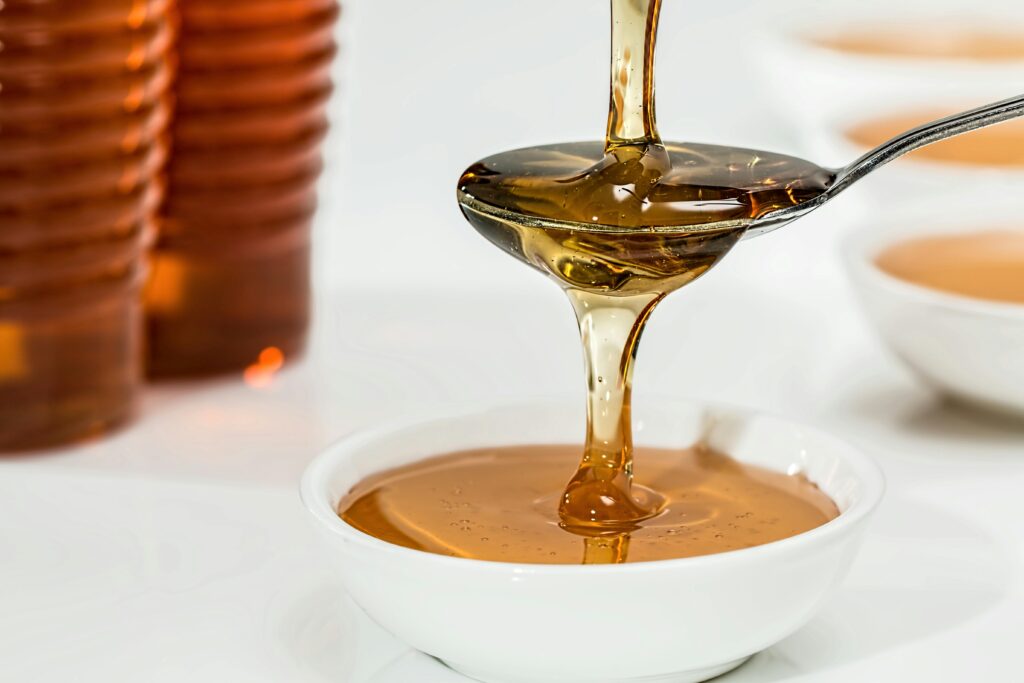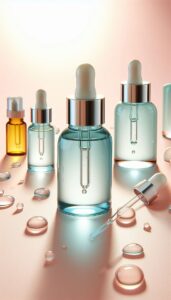For centuries, honey has been a treasured beauty secret, revered by ancient civilizations for its healing, nourishing, and rejuvenating properties. From Cleopatra’s milk and honey baths to traditional Ayurvedic treatments, this golden nectar has been a staple in skincare rituals across cultures. Modern science now supports what our ancestors knew all along—honey is a powerhouse ingredient that can transform the skin, providing deep hydration, reducing inflammation, fighting bacteria, and even slowing down the aging process. Whether used as a mask, cleanser, exfoliator, or moisturizer, honey offers a natural and effective way to achieve a radiant, youthful glow without harsh chemicals.
The Science Behind Honey’s Skincare Benefits
Honey’s magic lies in its complex chemical composition. It is a natural humectant, meaning it draws moisture from the environment into the skin, keeping it hydrated and plump. This is due to the presence of sugars like fructose and glucose, which have hygroscopic properties that help the skin retain water. Scientific studies have shown that honey improves the skin barrier function, preventing excessive water loss and keeping the skin soft and supple.
Raw honey is also rich in enzymes, amino acids, vitamins, and minerals, including vitamin B, calcium, potassium, and magnesium. These nutrients contribute to skin cell regeneration and repair, making honey an ideal remedy for dull or damaged skin. Additionally, honey contains antioxidants such as flavonoids and polyphenols, which help combat oxidative stress and protect the skin from environmental damage, a key factor in premature aging.
The antibacterial and antimicrobial properties of honey, particularly in varieties like Manuka honey, are well-documented. Research published in the Journal of Antimicrobial Chemotherapy confirms that honey has potent antimicrobial effects against bacteria such as Staphylococcus aureus and Propionibacterium acnes, which are known to cause acne. Unlike synthetic acne treatments that can dry out the skin, honey treats breakouts while maintaining the skin’s natural moisture balance.
Hydration and Moisture Retention
One of the most well-known benefits of honey in skincare is its unparalleled ability to hydrate the skin. Many commercial moisturizers contain synthetic humectants that provide temporary hydration, but honey’s natural humectant properties work deeper, binding moisture to the skin for a lasting effect. Studies have shown that honey increases skin hydration and elasticity, making it particularly beneficial for those with dry or mature skin.
When applied as a facial mask, honey penetrates the skin’s layers, replenishing moisture and strengthening the skin barrier. It is especially beneficial for individuals who experience flakiness, tightness, or rough texture. For an added boost, mixing honey with other natural moisturizers like yogurt, coconut oil, or avocado can amplify its hydrating effects.
Acne and Blemish Control
Many acne treatments rely on harsh chemicals that strip the skin of its natural oils, leading to irritation and dryness. Honey, on the other hand, provides a gentle yet effective solution. Its antibacterial properties help eliminate acne-causing bacteria, while its anti-inflammatory compounds, including phenolic acids, reduce redness and swelling.
A study published in the Asian Pacific Journal of Tropical Biomedicine found that honey has a significant effect on reducing acne lesions due to its antimicrobial activity. It not only fights existing breakouts but also prevents future ones by keeping the skin balanced and healthy. Applying raw honey directly to blemishes or using it as a face mask can accelerate healing and minimize scarring.
Gentle Exfoliation for a Brighter Complexion
Dead skin cells can accumulate on the surface, leading to a dull and uneven complexion. Unlike harsh exfoliating scrubs that can cause micro-tears in the skin, honey provides gentle enzymatic exfoliation. It contains natural alpha-hydroxy acids (AHAs) like gluconic acid, which help dissolve dead skin cells, revealing fresher, brighter skin underneath.
For a natural exfoliating treatment, honey can be combined with finely ground oats, sugar, or even a few drops of lemon juice. This combination sloughs away dead skin cells while nourishing the new skin layer, leaving it smooth and radiant.
Soothing Sensitive and Irritated Skin
People with sensitive skin often struggle to find products that provide benefits without causing irritation. Honey’s natural anti-inflammatory properties make it an excellent remedy for conditions such as rosacea, eczema, and sunburn. A study published in Evidence-Based Complementary and Alternative Medicine found that honey significantly reduces inflammation and promotes wound healing, making it a great option for calming redness and irritation.
Applying honey as a soothing mask can help reduce the appearance of irritation and redness while providing a cooling effect. Mixing honey with aloe vera or chamomile enhances its skin-soothing properties, making it ideal for those with sensitive or reactive skin.
Anti-Aging and Wrinkle Reduction
Aging is a natural process, but environmental stressors like pollution and UV exposure accelerate the formation of fine lines and wrinkles. Honey’s rich antioxidant content helps neutralize free radicals that contribute to premature aging. Research has shown that honey promotes collagen production, improving skin elasticity and firmness.
Collagen is a structural protein that keeps the skin plump and youthful. As we age, collagen production declines, leading to sagging and wrinkles. Honey’s ability to stimulate collagen synthesis makes it a valuable addition to any anti-aging skincare routine. Mixing honey with anti-aging ingredients like rosehip oil, vitamin E, or Greek yogurt can further enhance its rejuvenating effects.
How to Incorporate Honey Into Your Skincare Routine
Adding honey to your beauty regimen doesn’t require expensive products or complicated routines. It can be used in its raw form or combined with other natural ingredients to create customized skincare treatments. Using honey as a daily cleanser removes impurities without stripping the skin of its natural oils. As a hydrating mask, it deeply nourishes and restores moisture, while its exfoliating properties make it a gentle alternative to harsh scrubs.
For those dealing with acne, applying a thin layer of honey as a spot treatment can help heal breakouts quickly. To brighten dull skin, a honey and yogurt mask works wonders, providing an instant glow. If hydration is the goal, mixing honey with coconut oil creates a luxurious moisturizer that locks in moisture for hours.
Choosing the Right Honey for Skincare
Not all honey is created equal, and the type of honey used makes a difference in its effectiveness. Raw, unfiltered honey retains more of its beneficial enzymes and nutrients compared to processed honey, which often undergoes pasteurization that diminishes its healing properties. Manuka honey, in particular, is highly recommended for skincare due to its high antibacterial activity. Look for honey labeled as raw, organic, or unpasteurized for the best results.
A Natural Path to Radiant Skin
Incorporating honey into a skincare routine is one of the easiest and most effective ways to achieve a glowing complexion. Its ability to hydrate, heal, exfoliate, and protect makes it an invaluable ingredient for all skin types. Unlike commercial skincare products that may contain artificial additives and preservatives, honey offers a pure and gentle approach to beauty.
Whether seeking hydration, acne relief, or anti-aging benefits, honey provides a natural, science-backed solution for achieving beautiful, healthy skin. The best part? It’s an affordable, accessible, and eco-friendly alternative to expensive beauty products. By embracing honey as a skincare essential, radiant and youthful skin is just a jar away.





